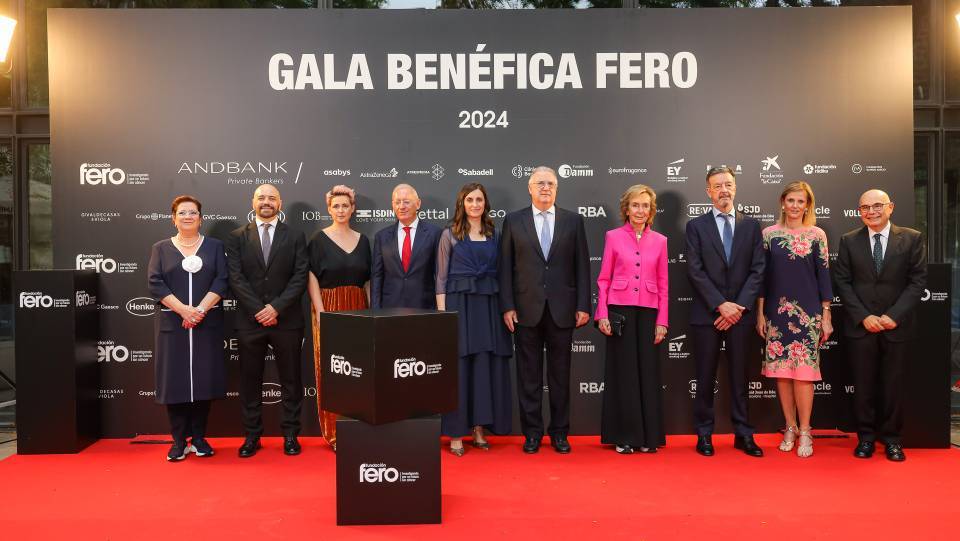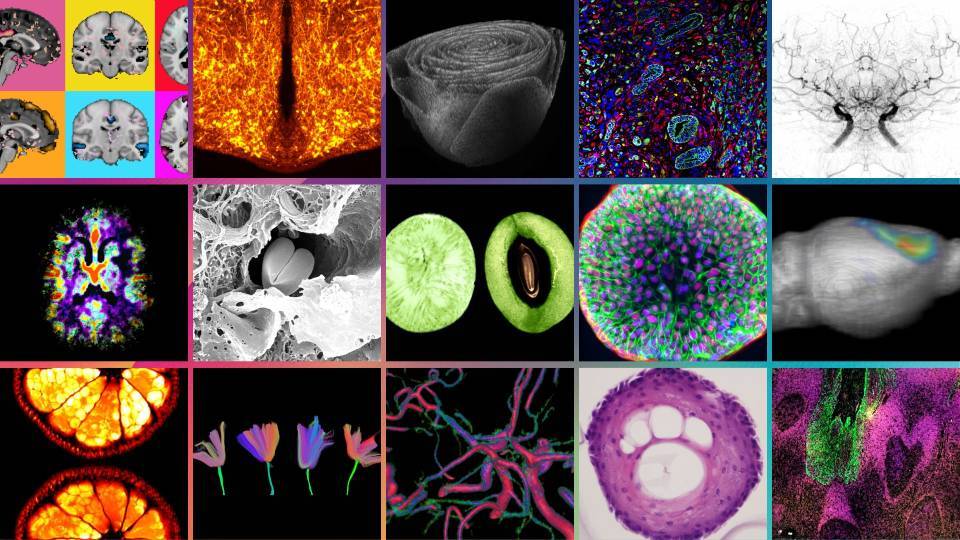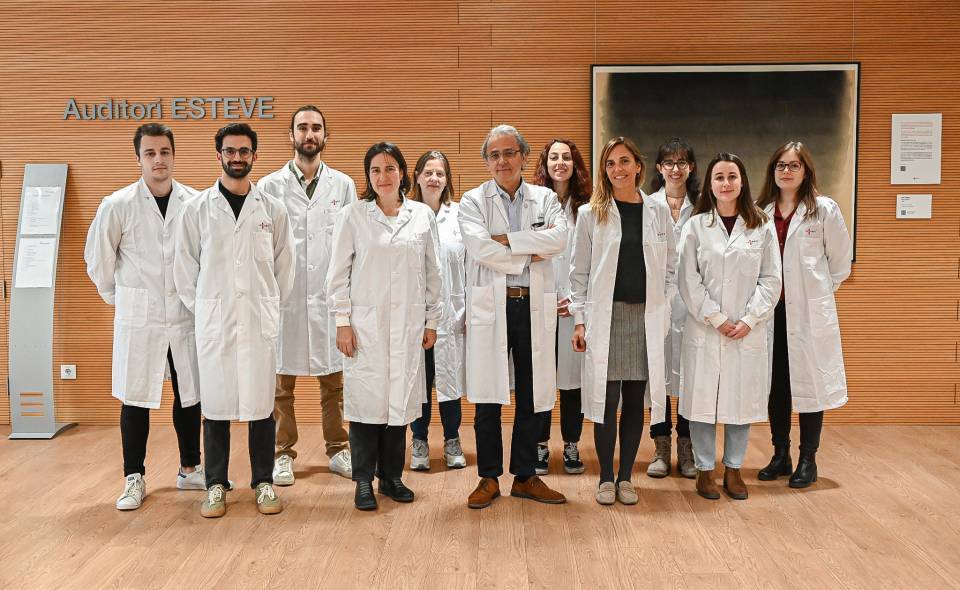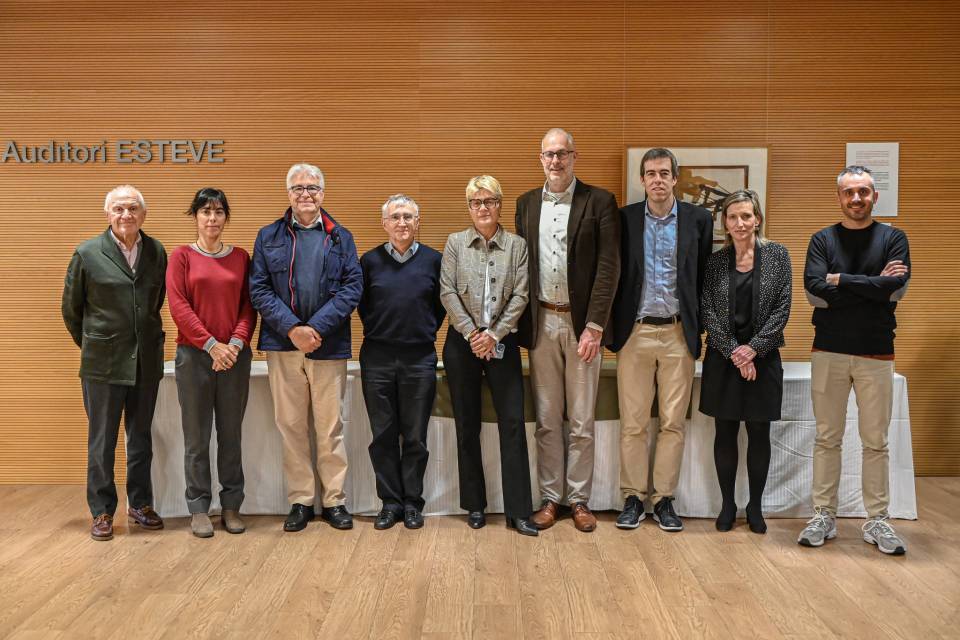The FERO Foundation has announced in Barcelona the winning projects of its latest grants: the XXVI and XXVII FERO Grants, the VI FERO-MANGO Project in Breast Cancer, and the III Dr. Baselga Grant. On this occasion, 540,000 euros have been distributed among the four awarded researchers to help them carry out their projects. This edition of the grants proposes projects to improve the understanding of different types of tumors and, thus, improve existing treatments or even develop new alternatives in cases where there are currently few options.
The official awarding of the 2024 grants took place during a charity dinner held in Barcelona at the Royal Shipyards on Monday, June 10, which was attended by around 800 people. The event featured prominent figures from the scientific and social spheres and included the collaboration of the Mirador Torre Glòries, which illuminated this important Jean Nouvel building in FERO green to highlight the Foundation's work on the city’s skyline. "For the FERO Foundation, it is a pride to continue supporting cancer research in our country. It is through science that we can continue to improve the diagnosis and treatment of this disease, and we are convinced that in the future we will manage to cure it,” commented Silvia Garriga, president of the FERO Foundation, who was also accompanied by vice-presidents Sol Daurella and Angie Miquel.
In this edition, the XXVI and XXVII FERO Grants and the VI FERO-MANGO Project are each endowed with 80,000 euros to carry out their translational research projects over two years. Meanwhile, the III Dr. Baselga Grant is endowed with 300,000 euros. Unlike the other FERO grants, which aim to promote the work of young researchers, this last grant is aimed at researchers with projects that have a very short-term clinical impact and is intended to honor the legacy of the great cancer researcher Josep Baselga, who passed away in 2021.
During the charity dinner, which served to raise funds for research and announce the various FERO Foundation grant winners, the important collaboration work with leading research centers in our country was also explained. “Currently, we have agreements with the Vall d’Hebron Institute of Oncology (VHIO) in Barcelona, the Research Institute (INCLIVA) in Valencia, and the Foundation for Biomedical Research of the 12 de Octubre University Hospital (i+12 Foundation), to which we allocate one million euros annually. We will now also start collaborating with the Hospital Clínic de Barcelona,” added Silvia Garriga.
The stemTIME Project: How Cancer Stem Cells Influence the Tumor and Immune Microenvironment in Response to Treatment
Dr. Silvia Affo, researcher in the Tumor microenvironment plasticity and heterogeneity (TMHet) group at IDIBAPS, has received the XXVII FERO Grant, sponsored by the Bosch Aymerich Foundation, for the stemTIME project, a highly promising initiative in the research of intrahepatic cholangiocarcinoma (iCCA), the second most common liver tumor with an incidence that has been increasing in recent years. Her approach to understanding the role of cancer stem cells (CSCs) in the tumor microenvironment (TME) and the tumor immune microenvironment (TIME) is crucial, as these components are fundamental to cancer progression and therapy response.

iCCA presents significant treatment challenges due to its resistance to chemotherapy and limited therapeutic options. Dr. Affo’s research aims to fill an important gap in our current understanding of the role of CSCs in this type of cancer and how they affect treatment efficacy. “The integration of experimental models in transgenic mice, multiplex immunofluorescence techniques, spatial transcriptomics, and patient-derived 3D cell culture systems offers a comprehensive approach to studying the complex interactions between CSCs, the TME, and the TIME. This multidisciplinary approach is essential to identify new therapeutic strategies that can improve the prognosis of patients with iCCA and potentially other desmoplastic cancers,” explains Dr. Affo.
The findings of this project could not only have a crucial impact on developing more effective combination treatments for iCCA but also provide valuable information for personalized therapy and precise patient stratification. Furthermore, a deeper understanding of the interactions between CSCs and their tumor environment could open new avenues for improving treatments and prognoses in a variety of cancer types.
About the Grants
This edition saw 72 research projects submitted to this new call for grants, of which 39 were for the FERO Grant, 14 for the FERO-MANGO Project, and 19 for the Dr. Baselga Grant. With this, there have been sixteen years of promoting the development of translational cancer research. The other awardees in this edition were Dr. Sara Sdelci from CRG in Barcelona, winner of the VI FERO-MANGO Project in Breast Cancer, Dr. Francisco Barriga from VHIO in Barcelona, who received the XXVI FERO Grant, and the III Dr. Baselga Grant was awarded to the SMART-T project of Dr. Luis Álvarez-Vallina from the Cancer Immunotherapy Unit at Hospital 12 de Octubre-CNIO.
The selection of projects is overseen by the FERO Call Jury, a group of 15 independent leading researchers in the field of oncology in Spain. Led by Dr. Andrés Cervantes, head of the Medical Oncology Service at the University Clinic Hospital of Valencia and president of the grant jury, the jury includes prominent figures such as Dr. Josep Tabernero, director of the Vall d’Hebron Institute of Oncology (VHIO); Dr. Akaitz Carracedo, Ikerbasque researcher at CIC bioGUNE; Dr. Luis Paz Ares, head of the Medical Oncology Service at Hospital 12 de Octubre in Madrid; Dr. Ana Lluch, coordinator of the Breast Cancer Biology Research Group at the INCLIVA Health Research Institute in Valencia; Dr. Aleix Prat, head of the Medical Oncology Service at Hospital Clínic de Barcelona; Dr. Carlos Arteaga, director of the Simmons Cancer Center at the University of Texas; Dr. Antoni Ribas, researcher at the University of California, Los Angeles, and Dr. Maurizio Scaltriti, vice president of Translational Medicine in Oncology R&D at AstraZeneca, among others.
About the FERO Foundation
The FERO Foundation is a private foundation dedicated to promoting cancer research. Founded in 2001 by Dr. Josep Baselga and currently chaired by Silvia Garriga, it supports translational research, a model based on transferring basic research results to the clinic, allowing patients to benefit more quickly from scientific advances against cancer. The foundation is a driving force behind the Vall d’Hebron Institute of Oncology (VHIO), an internationally renowned institution in the field of oncology, and has institutional agreements with other leading centers such as the Hospital Clínic de València and Hospital 12 de Octubre in Madrid, and starting this year, also with the Hospital Clínic de Barcelona. Additionally, for fourteen years, it has awarded the FERO Grants to support the careers of young researchers and collaborates with twenty research centers across Spain, funding projects, programs, and teams that are changing the way we confront cancer today.




